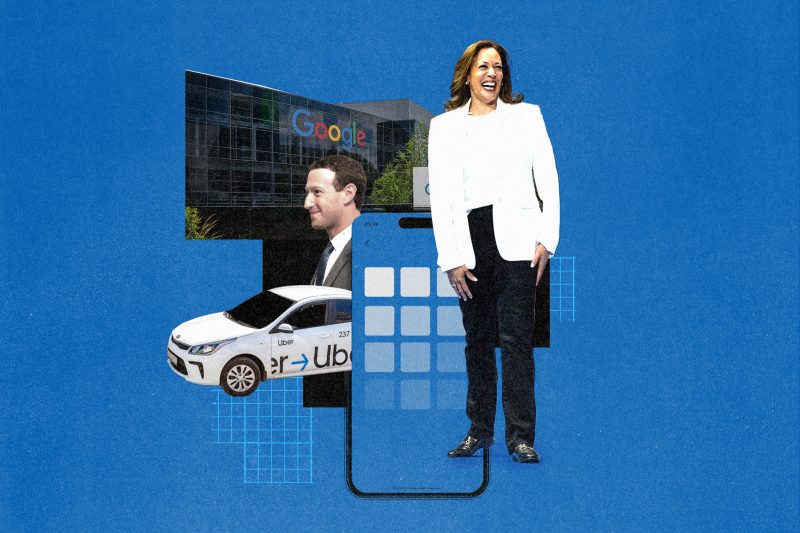Silicon Valley Had Harris’s Back For Decades. Will She Return The Favor?
The relationship between political figures and Silicon Valley has always been complex and multifaceted. In recent years, this relationship has come under increased scrutiny, with questions being raised about the influence and power that tech giants wield over political decision-making. One prominent figure who has long enjoyed support from Silicon Valley is Vice President Kamala Harris. Over the course of her career, Harris has cultivated close ties with tech leaders and has benefited from their financial support. Now, as Vice President, the question arises: will Harris return the favor and support Silicon Valley in turn?
Harris’s ties to Silicon Valley date back many years. As a Senator representing California, Harris received substantial financial backing from tech industry heavyweights. Companies such as Google, Facebook, and Apple were among her top donors, contributing millions of dollars to her campaigns. In return, Harris often spoke out in support of tech-friendly policies, such as net neutrality and immigration reform to attract tech talent.
One issue that has further solidified Harris’s relationship with Silicon Valley is her stance on innovation and technology. Throughout her political career, Harris has emphasized the importance of fostering a culture of innovation and supporting technological advancement. She has consistently advocated for policies that promote entrepreneurship and economic growth, aligning closely with the interests of tech companies in Silicon Valley.
As Vice President, Harris now finds herself in a position of significant influence over policies that directly impact the tech industry. With Silicon Valley’s interests at stake, many are wondering whether Harris will prioritize the concerns of her longtime supporters. Will she push for regulatory measures that benefit tech companies, or will she champion policies that address broader societal concerns, such as data privacy and antitrust enforcement?
Recent developments suggest that Harris may indeed be inclined to repay the support she has received from Silicon Valley over the years. In her role as Vice President, Harris has been vocal about the need to invest in technology and innovation to drive economic recovery and create jobs. She has also called for increased funding for STEM education and workforce training, signaling her commitment to supporting the tech industry.
However, Harris’s relationship with Silicon Valley is not without its challenges. The tech industry continues to face mounting criticism over issues such as data privacy, misinformation, and monopolistic practices. As Vice President, Harris must navigate these complex issues and strike a balance between supporting innovation and holding tech companies accountable for their actions.
In conclusion, the relationship between Vice President Kamala Harris and Silicon Valley is a nuanced one, shaped by years of mutual support and shared interests. As Harris continues to wield influence in the White House, all eyes will be on how she navigates the competing demands of the tech industry and the public interest. Only time will tell whether Harris will stand by her longtime allies in Silicon Valley or chart a new course that prioritizes the broader societal good.

